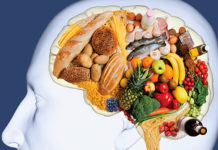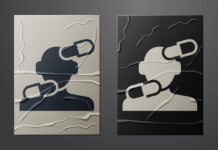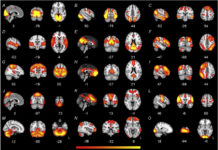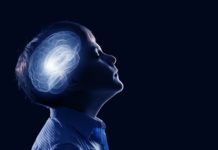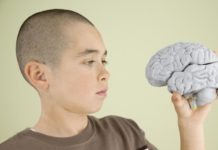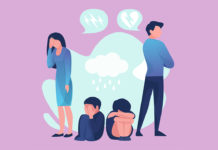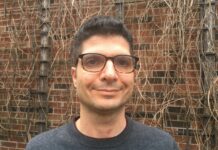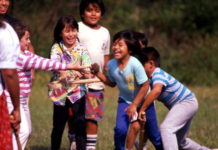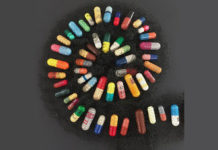NY Times Finally Figures out ADHD Critics May be Onto Something
From The New York Times: "From 2012 to 2022, the total number of prescriptions for stimulants to treat A.D.H.D. increased in the United States...
Abused by Psychiatrists After a BPD Misdiagnosis
If you don't realize that you are autistic, your intellectual, sensory, social, and emotional differences are a mystery, even to you.
Growing Research Connects Nutrition and Mental Health
A new article reviews studies in the field of nutritional psychiatry and how nutrition can prevent and treat mental health issues.
“Dad, Something’s Not Right. I Need Help”: Richard Fee on the Dangers of Adderall
In appointments that last five to seven minutes, all doctors do is push drugs—psychiatric drugs, ADHD meds, everything.
How “Mental Health Awareness” Exploits Schoolchildren
Imagine being a parent at a meeting with educators to discuss Johnny's academics or behavior. Suddenly, your child’s teacher is telling you that he needs to see a doctor for an assessment of a suspected “mental disorder,” which usually leads to a prescription for medication. Warned of “the risks against failing to intervene,” you will likely acquiesce.
Getting A Diagnosis Meant That My Sister Never Had the Chance to Resolve Her...
My sister was told if she took medications everything would be fine. But everything was not fine, and the medications sent her down a path of no return.
How to Distinguish Antidepressant Withdrawal from Relapse
Mark Horowitz and David Taylor provide advice on how to tell the difference between antidepressant withdrawal and depression relapse.
No Brain Connectivity Differences Between Autism, ADHD, and “Typical Development”
Neuroscience researchers find no differences in brain connectivity between children with diagnoses of autism, ADHD, and those with no diagnoses.
Letter to My Child’s Psychiatrist
Dear Doctor, I wonder if you remember my son... you only spent about ten minutes with him, exactly four days after his first suicide attempt. I asked you if his medication, Zoloft, had anything to do with what was happening. You looked at me and said, "There's no way of knowing; there are too many factors involved."
Why Parents Give Amphetamines and Other Risky Psychiatric Drugs to the Children They Love
The stakes are very high when loving parents anxiously sit down across from a child psychiatrist who has completed an ADHD evaluation of their child. All of the parents' high hopes for their precious child's well-being and future happiness are pressing on the parent's heart and mind. The psychiatrist leans to the side, reaches into a drawer, and lifts out a life-size model of a human brain for the parent or parents to see. The little five-year-old sitting on the floor playing stops and looks up at a model of his or her brain as the psychiatrist breaks the bad news. And the question is formed right then in the little boy or little girl's soul that may haunt the child for the rest of their lives – "Why is there something wrong with my brain?"
FDA Approves Using Electricity All Night Long on Children’s Brains
The FDA just approved sales of an electrical device called the Monarch eTNS to be used on the brains of children diagnosed with so-called ADHD. The device “sends therapeutic signals to the parts of the brain thought to be involved in ADHD,” according to the FDA press release. “Therapeutic signals”? Really?
William James’s Letter to His Depressed Daughter
If you discover that your child has been experiencing a bout with depression, what wise words might you share? Brilliant psychologist William James was forced to address this issue himself when his 13-year-old daughter, Peg, began to struggle with melancholy. I present his long, thoughtful reply for your consideration.
Researchers Warn of “Brain Atrophy” in Children Prescribed Antipsychotics
Researchers discuss the evidence that antipsychotic medications may cause brain atrophy in children, whose brains are still developing.
Q&A: What Is Executive Function, and How Can Parents and Teachers Help Kids Focus?
Ask anyone who’s ever taught kids, and they’ll tell you a story about one student who sticks in their memory.
Lockdown Reading to End DSM Psychiatry?
A review of the "Adult Children of Emotionally Immature Parents" books by Lindsay Gibson. Even though adults experience emotional loneliness, such loneliness can also start in childhood when we might have felt (and I would submit, actually were) unseen emotionally by self-preoccupied parents.
A Nurse’s Nightmare: Child Nearly Dies from ADHD Drug
My hope and prayer is that this dramatic look at a negative effect of this class of drugs will help you understand that, in my professional assessment, their risks outweigh their benefits.
The TikTokification of Mental Health on Campus
Many people view their social media feeds as reflections of their identities—and when posts center on a specific diagnosis, it can feel like the platform is diagnosing them.
Mental Hell-Care: My Sibling’s Story
Doctors refuse to believe psychiatric medications have caused my sibling, Pat, any harm. Over a three-year period, however, Pat's insurance companies have paid out more than one million dollars to warehouse Pat and to provide "treatment" that has caused complete disability.
Toxic Schools Worsening Toxic Stress: The Destructive Reign of Standardized Education, Pathology, Medication and...
From HERE This NOW: Advances in science in the last thirty years help us realize the fallacy of "mind over matter," yet we still hold an entrenched belief that children and adults possess 100% conscious control over their behavior.
Understanding the Youth Mental Health Crisis: An Interview with Elia Abi-Jaoude
The child psychiatrist talks about the importance of seeing the big picture and why parents shouldn't "be afraid if their kid is in distress."
Healing From Transgenerational Trauma: My Mum, My Daughter, & Me
Emotional trauma is the type of wound that, if not processed and integrated, can become a void that expands to swallow not just the traumatized person but also their children and grandchildren.
Belongingness Can Protect Against Impact of Trauma, Study Suggests
A new study explores feelings of belongingness as a protective factor for childhood trauma and adult mental health outcomes.
One Flew Over the Scientific Consensus’ Nest—The Story of Dr. Ophir and ADHD
The backlash against Dr. Yaakov Ophir, licensed clinical psychologist and promising scholar, began when he reported his findings about the scientific validity of ADHD.
My Mother Wound: Rethinking “Fear of Abandonment”
Therapists are quick to refer to this pain I feel as a “fear of abandonment,” as if it is a figment of my mind and something not worth the time to attend to.
Antidepressants Still Linked to Increased Suicide Risk
Bias and financial conflicts in antidepressant trials “contribute to systematic underestimation of risk in the published literature.”



